Affordable Facebook Adverts in Nigeria for Your Business
July 2, 2019
Get Loyal Customers in 6 Months Using Organic Facebook Marketing Agency in Nigeria
March 1, 2020
In 2019, compliance with cybersecurity standards became more than a legal requirement.
It evolved into a strategic asset for enhancing digital marketing effectiveness. Adhering to standards such as NIST, HIPAA, and PCI DSS not only safeguards sensitive data but also builds trust and credibility, vital elements in today’s data-driven marketing landscape. This article explores how compliance boosts digital marketing strategies by establishing a secure environment for customers and providing a competitive advantage for brands.
(1) Understanding Cybersecurity Standards
Compliance with cybersecurity standards like NIST, HIPAA, and PCI DSS ensures comprehensive protection for sensitive data. NIST, for instance, provides a framework of security controls that companies can use to prevent data breaches and uphold privacy, particularly valuable in sectors like healthcare and finance.
By embedding these standards into digital marketing operations, businesses protect customer information, enhance brand reputation, and build a secure foundation for customer relationships.
Case Study: A 2019 survey of technology companies adhering to NIST guidelines found a significant reduction in security incidents, directly improving customer trust and engagement in marketing efforts. Companies implementing NIST guidelines were able to use this compliance as a testament to their commitment to security, strengthening their public image.
Expert Opinion: According to cybersecurity expert Bruce Schneier, “Compliance with recognized standards, while sometimes considered a legal checkbox, is an essential framework for any organization to establish trust and prevent data leakage.” Schneier’s insights highlight the value of these frameworks not only for security but also as a basis for a trustworthy brand image.
(2) Building Trust Through Compliance
A strong security posture that prioritizes data protection demonstrates a brand’s commitment to safeguarding customer information, building the trust that is fundamental to digital marketing success. When customers feel confident that their data is secure, they are more likely to engage with brands and recommend them to others, making compliance a powerful tool for enhancing brand loyalty and credibility.
Case Study: Healthcare providers who maintained HIPAA compliance saw an increase in patient engagement and satisfaction. For instance, the “Secure Health Campaign” in 2019 utilized HIPAA compliance as a cornerstone, emphasizing patient privacy in its marketing. This approach resonated with audiences and boosted their trust in healthcare providers.
Expert Opinion: Brian Krebs, a prominent cybersecurity journalist, states, “Compliance is a visible mark of credibility, especially in sectors where sensitive data is involved. Brands that prioritize security and comply with standards naturally earn a higher degree of trust from customers.”
Read This: Your Website Security, Compliance, and IT Support.
(3) Enhancing Marketing Strategies with Data Protection
Data protection is a crucial part of compliance, and adhering to standards allows marketers to handle customer data responsibly while creating personalized marketing strategies. When data is protected through secure practices, companies can leverage insights for targeted campaigns without compromising security.
Case Study: E-commerce brands that complied with PCI DSS were able to conduct marketing campaigns confidently, knowing their payment processes were secure. Companies reported increased customer retention as consumers felt more at ease making repeat purchases from secure websites.
Expert Opinion: Rand Fishkin, founder of SparkToro and SEO expert, notes, “Data security and privacy have become essential in customer retention. Secure data practices not only protect customers but also provide a reliable foundation for marketing to create deeply personalized, effective strategies.”
(4) Cybersecurity as a Competitive Advantage
Organizations that prioritize cybersecurity and compliance can leverage it as a unique selling point in their marketing. Highlighting cybersecurity standards in marketing materials differentiates a brand, especially for customers concerned about privacy. Compliance thus acts as a competitive advantage, showcasing a company’s commitment to protecting its clients.
Case Study: Marketing campaigns emphasizing cybersecurity, such as the “Secure Shopping Pledge,” resonated with consumers. By marketing its PCI DSS compliance, the company positioned itself as a secure and reliable shopping option, gaining market share over competitors who didn’t emphasize their security credentials.
Expert Opinion: Troy Hunt, security researcher and creator of “Have I Been Pwned,” explains, “Cybersecurity isn’t just about protecting assets; it’s a vital aspect of branding. Companies that openly prioritize security in their marketing appeal to an increasingly privacy-conscious audience, turning security into a competitive advantage.”
If your brand has experience with cybersecurity compliance in digital marketing, we’d love to hear your insights. How has it impacted your customer engagement and brand trust? Share your thoughts, and let’s discuss ways compliance can enhance digital marketing effectiveness.
Build A Solid Digital Footprint For Your Brand or Business
We will help you research the perfect keywords and key phrases that will help your business and brand stand out from the competition over time.
We will create an entire SEO and SEM structure for your business. We will follow this structure up with an entire online marketing plan.
We will create the perfect business website for whatever business you have and help you manage your business over an agreed period of time, at a very affordable rate.




